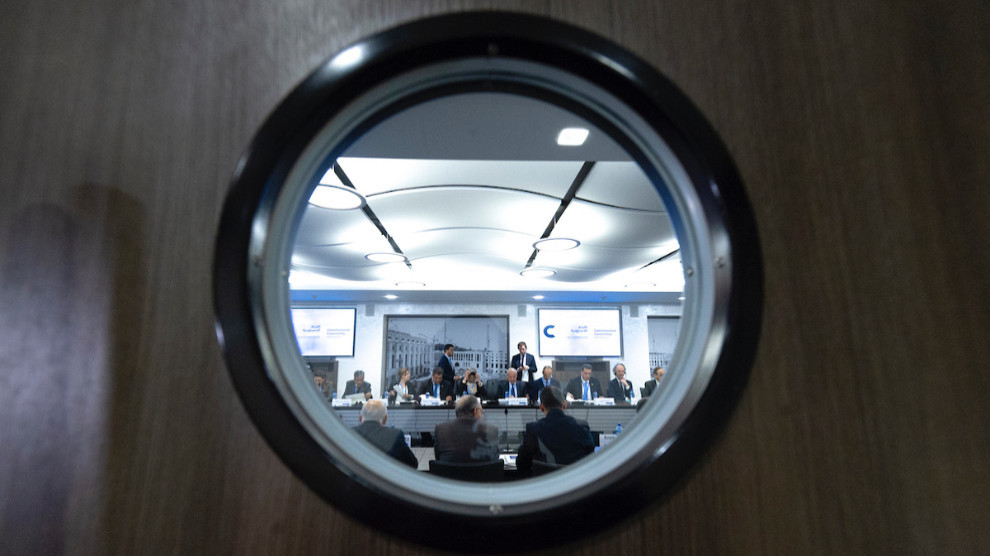The ‘Syrian’ crisis in Geneva continues
The crisis in the Syrian Constitutional Committee talks in Geneva cannot be overcome. The delegation of the Syrian regime does not partake in the meetings after the rejection of its proposal.
The crisis in the Syrian Constitutional Committee talks in Geneva cannot be overcome. The delegation of the Syrian regime does not partake in the meetings after the rejection of its proposal.

The Geneva talks of the so-called Constitutional Committee for Syria were suspended on 30 October and resumed on November 25 at the UN's Geneva office. The committee was selected from 150 people and consists of 15 representatives of the regime, 15 representatives of the "opposition" supported by Turkey and 15 representatives of civil society organisations from Syria.
The crisis continues at the second round of Geneva talks to which representatives of the Autonomous Administration of North and East Syria are not invited.
On Monday, the representative of the Syrian regime, Ahmad Kuzbari, put three conditions for the talks on the agenda. The talks dealt with "the fight against jihadist terrorists on Syrian territory, the lifting of sanctions against Syria and a joint condemnation of the invasion of Syria". Kuzbari explained that if these conditions were not accepted, it would show that the committee would be led by external forces. How can Syria's territorial integrity and independence, the sine qua non of Constitutional talks, be preserved if the invasion is not condemned?
UN INSISTENCE YIELDS NO RESULTS
Since the three points were not accepted by the so-called "opposition", the regime's delegation retreated from the talks on Monday and meetings cannot be continued since. The diplomacy traffic led by UN Special Representative for Syria Geir O. Pedersen and his team has remained inconclusive on Wednesday as well.
Despite the delegations having gathered at the UN Geneva Office on Tuesday evening, no meeting took place. Pedersen and his team had short talks with the representatives of delegations in separate rooms. As the crisis couldn’t be overcome despite these talks, no meeting has taken place on Wednesday either.
Neither Pedersen nor the UN Press Office has made any official statement on the talks for the past two days because of the ongoing crisis.
In the meantime, a source from the Syrian national delegation at the Committee of Discussing the Constitution spoke to Syrian Arab News Agency (SANA) and said that “over two days we haven’t entered any session due to the rejection of the Turkish regime’s delegation of the national principles which our delegation wanted to propose.”
Defining the “opposition” groups as the Turkish regime’s delegation, the source said; “the Turkish regime’s delegation which is subordinate to its Turkish masters has rejected to engage in any discussion on the basic national principles which are of interest to the Syrian people.”
The source went on to say that the subordination of the Turkish regime to the abroad made it reject to discuss basic principles such as the independence, sovereignty and combating terrorism.
There is no transparent information on the identities of the Ankara-backed “representatives” partaking in the talks. The Turkish-backed groups are known to have been committing war crimes systematically in the areas they have invaded in North and East Syria. Crimes such as forced displacement, murder, mass execution, torture, rape, detention and usurpation have been documented and denounced by international human rights organisations as well, including the Human Rights Watch (HRW) and Amnesty International.
Kurds have not been invited to any round of the Constitutional talks held in Geneva. The Autonomous Administration had announced before that they would not recognise this initiative. The previous UN-led talks “in search of a solution” had also excluded the Kurds and all of them eventually failed.